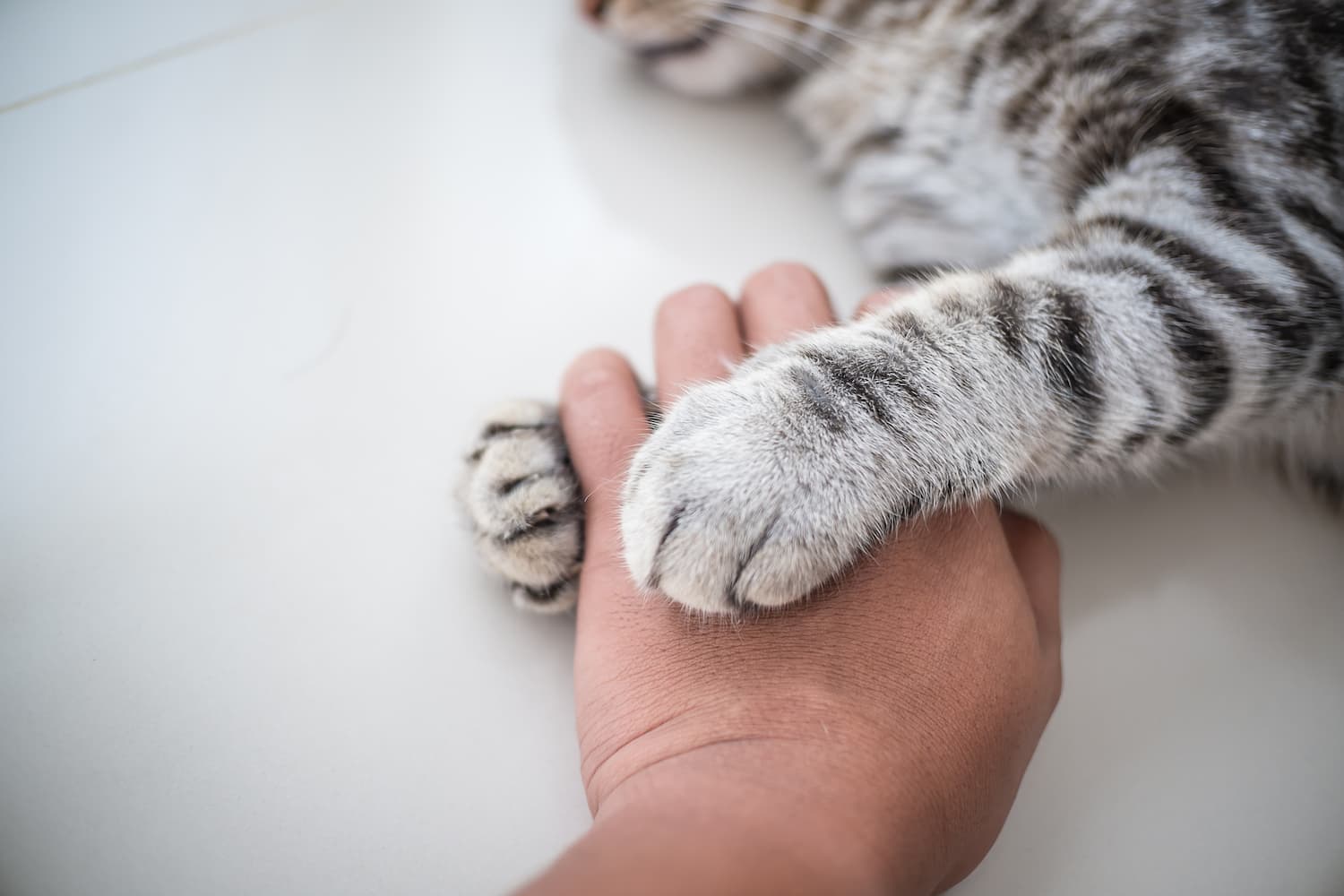We understand the profound sadness and uncertainty that comes with deciding to part with a beloved pet, whether due to terminal illness or age. Our team is here to help you navigate this emotional journey. We provide a peaceful and comforting euthanasia process, ensuring that your pet’s final moments are filled with love and care. Understanding the “why” behind this decision is important, and we emphasize patient education to help you feel more confident and at peace with this difficult choice.
Hospice Care: Cherishing Every Moment
Pet Hospice care can give you precious time to spend with your pet before they pass on. Our hospice services are designed to provide comprehensive support for you and your pet during this time, whether dealing with an aging pet or a young pet facing a terminal illness.
- Health Education: Providing detailed information about your pet’s condition and what to expect.
- Natural Death Option: Discussing the possibility and implications of a natural death.
- Pain Recognition and Management: Helping you identify signs of pain and providing methods to alleviate it.
- Understanding Terminal Diseases: Educating you on the progression and symptoms of terminal diseases.
- Incontinence Management: Offering solutions for managing incontinence in a dignified manner.
- Wound Care: Providing care for any wounds or sores to keep your pet comfortable.
- End-Stage Process Support: Guiding you through the final stages of your pet’s life with compassion and understanding.

Caring and Objective Advice
At Lake County Veterinary Clinics, we understand how heart-wrenching it can be to make decisions about your pet’s end of-life care. Our compassionate team is here to provide caring, objective advice, treating your pet as if they were our own. We are committed to supporting you through every step of this difficult journey, ensuring that your pet’s comfort and dignity are prioritized. You can rely on us for honest guidance and unwavering empathy during this emotional time.
Signs Your Pet's Quality of Life May be Impacted
Making the decision to say goodbye to a beloved pet is incredibly difficult, but recognizing the signs that your pet may be ready to cross the rainbow bridge can help you make the most compassionate choice. Here are some indicators that your pet may be nearing the end of their journey:
- Loss of Appetite: A significant and sustained decrease in appetite can indicate that your pet's body is shutting down.
- Difficulty Breathing: Labored breathing or prolonged coughing can be signs of serious health issues that may not be manageable.
- Incontinence: Loss of bladder or bowel control can be a sign of declining health and can greatly affect your pet's quality of life.
- Lack of Grooming: Cats, in particular, may stop grooming themselves, leading to an unkempt appearance.
- Behavioral Changes: Unusual aggression, anxiety, or withdrawal from family members can be signs of discomfort or distress.


Frequently Asked Questions
Our FAQ section aims to provide you with quick and helpful answers to common questions about our end-of-life care and hospice services. Whether you’re making a decision about euthanasia or looking for hospice care, you’ll find valuable insights here.
How do I know when it’s time to say goodbye to my pet?
Our veterinarians can help you assess your pet’s quality of life and discuss the signs that indicate it may be time for euthanasia.
What is the euthanasia process like?
We strive to make the process as peaceful as possible, providing sedation to ensure your pet is calm and comfortable throughout the process.
Can my pet have a natural death at home?
Yes, we can discuss the natural death option and provide guidance on how to keep your pet comfortable during this time.
What pain management options are available for my terminally ill pet?
We offer various pain management options, including medications and supportive care, to ensure your pet’s comfort.
How can I prepare for my pet’s end-of-life care?
We provide education and support to help you understand and prepare for your pet’s end-of-life needs, ensuring you can make the most of your remaining time together.
How do I explain my pet’s passing to my children?
Explaining a pet’s passing to children can be difficult. Be honest and gentle, using simple language. Encourage them to express their feelings and provide comfort and support. Reading books can also help; consider titles like “The Tenth Good Thing About Barney” by Judith Viorst, “Dog Heaven” by Cynthia Rylant, “Cat Heaven” by Cynthia Rylant, and “I’ll Always Love You” by Hans Wilhelm. We can also offer resources to help guide these conversations.